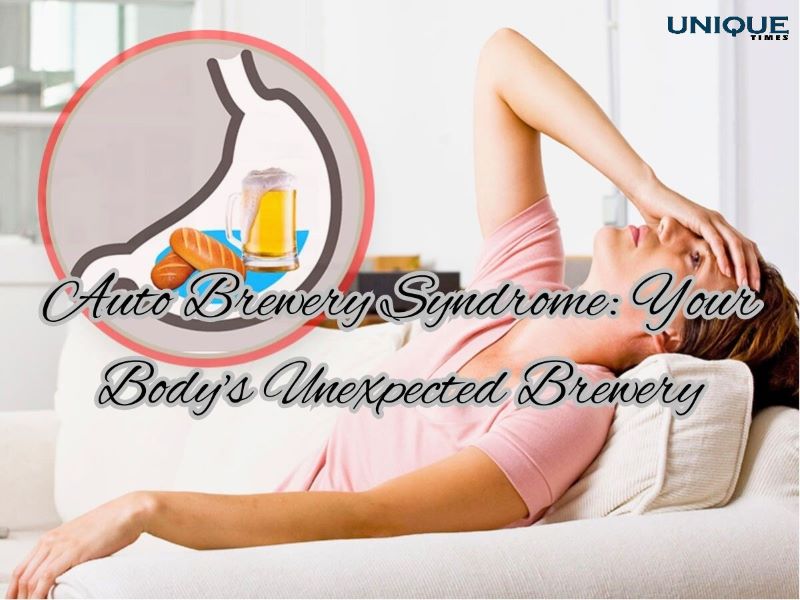Auto Brewery Syndrome: When Your Body Becomes Its Own Brewery

In the realm of rare medical conditions, Auto Brewery Syndrome (ABS) stands out as one of the most peculiar. Imagine feeling intoxicated, drunk, and impaired without ever consuming a drop of alcohol. This condition, sometimes humorously referred to as “drunkenness disease,” is exceedingly rare but captivating in its complexity. In this blog, we will dive into the enigmatic world of Auto Brewery Syndrome.
Understanding Auto Brewery Syndrome:
Auto Brewery Syndrome is a baffling medical condition in which the digestive system, particularly the small intestine, turns into an unexpected brewery, fermenting carbohydrates and producing alcohol as a byproduct. This alcohol finds its way into the bloodstream, leading to symptoms reminiscent of intoxication, such as impaired coordination, slurred speech, and altered cognitive function.
The Mechanism Behind ABS:
- Yeast Overgrowth: ABS is often linked to an overgrowth of yeast, typically Saccharomyces cerevisiae, in the digestive system. These yeast strains perform a process akin to beer brewing, fermenting carbohydrates into ethanol.
- Carbohydrate Fermentation: When individuals with ABS consume carbohydrates, even in moderate amounts, the abundance of yeast in their gut ferments these carbohydrates into ethanol. Consequently, this ethanol is absorbed into the bloodstream, causing symptoms that mimic the effects of alcohol.
- Symptoms: ABS can present a wide range of symptoms, including dizziness, fatigue, confusion, and even behaviors reminiscent of inebriation. In some cases, those afflicted with ABS have been mistakenly arrested for suspected DUI (driving under the influence), despite not having consumed any alcoholic beverages.
Diagnosis and Treatment:
Diagnosing ABS can be a formidable challenge, as it necessitates ruling out other potential causes of symptoms akin to alcohol intoxication. Medical professionals typically perform blood tests to gauge blood alcohol levels and may conduct gastrointestinal examinations to detect yeast overgrowth.
Treatment for ABS revolves around addressing the underlying yeast overgrowth and managing carbohydrate intake. This may involve the use of antifungal medications, adopting dietary modifications (often involving low-carb diets), and introducing probiotics to regulate the condition.
Living with Auto Brewery Syndrome:
Coping with ABS can be profoundly challenging, as it can lead to unpredictable and socially awkward situations. Many individuals living with ABS must make significant adjustments to their diets to effectively manage their symptoms. The condition underscores the importance of raising awareness about rare medical conditions and cultivating understanding to prevent misjudgments, as well as offering the appropriate support to affected individuals.
Conclusion:
Auto Brewery Syndrome, colloquially known as “drunkenness disease,” is an enigmatic and rare medical condition that induces intoxication-like symptoms without any alcohol consumption. Grasping the mechanisms behind ABS and providing the right medical care and support to those affected is crucial in helping individuals manage this bewildering condition. As we continue to explore the mysteries of ABS, it serves as a reminder of the intricate nature of the human body and the unique challenges faced by some individuals on their journey to good health.
Picture Courtesy: Google/images are subject to copyright








